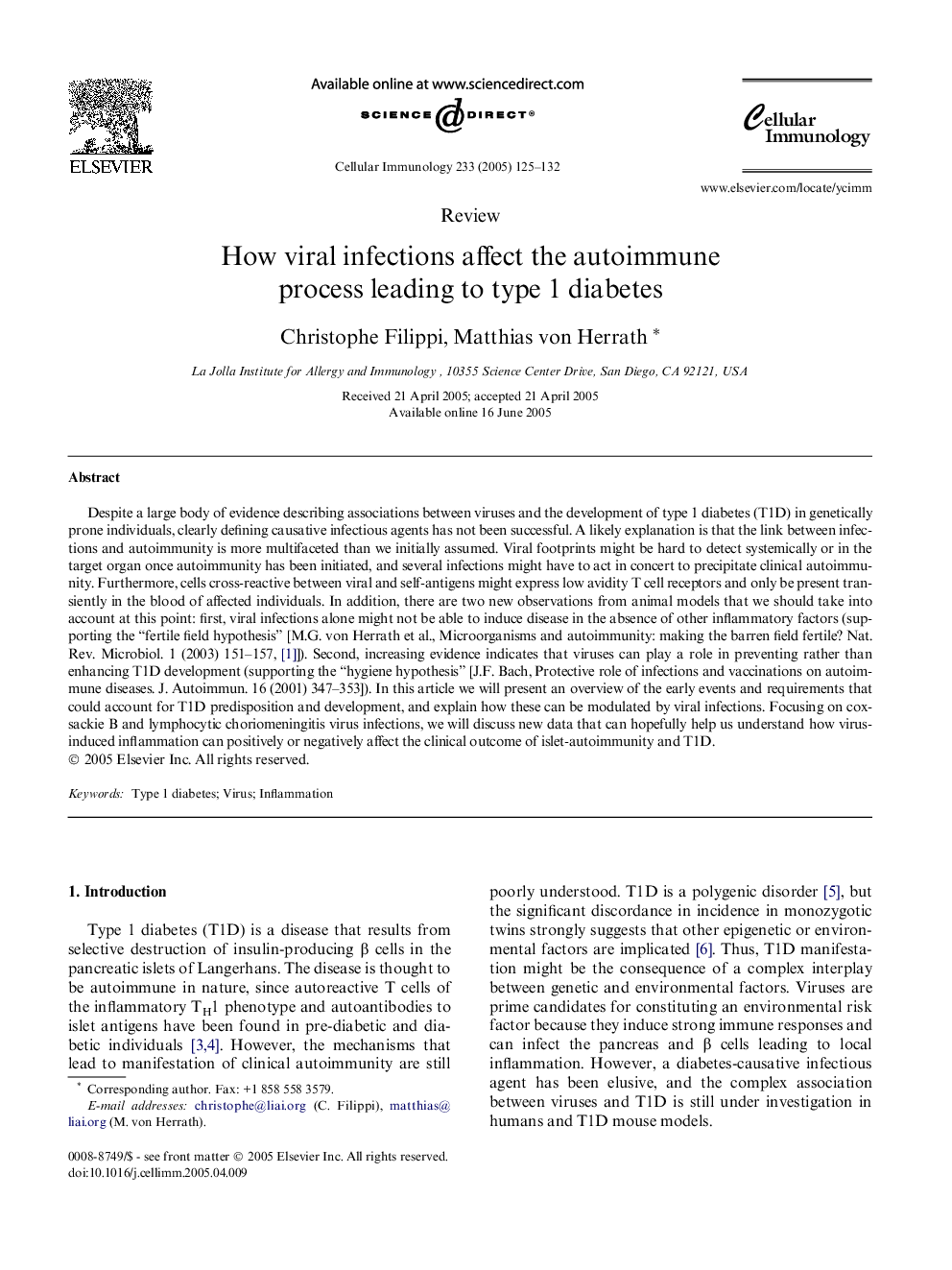| Article ID | Journal | Published Year | Pages | File Type |
|---|---|---|---|---|
| 10927179 | Cellular Immunology | 2005 | 8 Pages |
Abstract
Despite a large body of evidence describing associations between viruses and the development of type 1 diabetes (T1D) in genetically prone individuals, clearly defining causative infectious agents has not been successful. A likely explanation is that the link between infections and autoimmunity is more multifaceted than we initially assumed. Viral footprints might be hard to detect systemically or in the target organ once autoimmunity has been initiated, and several infections might have to act in concert to precipitate clinical autoimmunity. Furthermore, cells cross-reactive between viral and self-antigens might express low avidity T cell receptors and only be present transiently in the blood of affected individuals. In addition, there are two new observations from animal models that we should take into account at this point: first, viral infections alone might not be able to induce disease in the absence of other inflammatory factors (supporting the “fertile field hypothesis” [M.G. von Herrath et al., Microorganisms and autoimmunity: making the barren field fertile? Nat. Rev. Microbiol. 1 (2003) 151-157, [1]]). Second, increasing evidence indicates that viruses can play a role in preventing rather than enhancing T1D development (supporting the “hygiene hypothesis” [J.F. Bach, Protective role of infections and vaccinations on autoimmune diseases. J. Autoimmun. 16 (2001) 347-353]). In this article we will present an overview of the early events and requirements that could account for T1D predisposition and development, and explain how these can be modulated by viral infections. Focusing on coxsackie B and lymphocytic choriomeningitis virus infections, we will discuss new data that can hopefully help us understand how virus-induced inflammation can positively or negatively affect the clinical outcome of islet-autoimmunity and T1D.
Keywords
Related Topics
Life Sciences
Biochemistry, Genetics and Molecular Biology
Cell Biology
Authors
Christophe Filippi, Matthias von Herrath,
